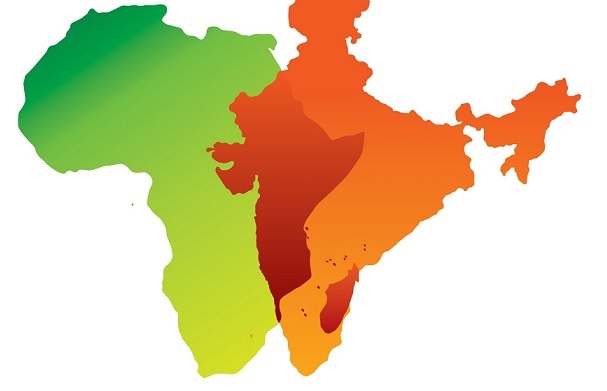
It’s all about location, says Hong Kong as it woos Indian IT firms, airlines
By Aroonim Bhuyan,
New Delhi : The Hong Kong Special Administrative Region is actively wooing Indian investors — especially software firms and airlines — pitching itself as the gateway to the markets of mainland China, northeast and southeast Asia.
“There are a number of fundamentals about Hong Kong that are very attractive,” Stephen Phillips, Director General of Invest Hong Kong (InvestHK) who was on a visit to India this month, told IANS in an exclusive interview.
Stating that it is a very vibrant international city, Phillips said it is a “fantastic financial and professional services centre with a depth of talent and expertise to structure finance and business ventures across the region”.
“It is a great location with a lot of talent that can help Indian businesses tackle not only the Hong Kong market but China, northeast Asia and Southeast Asia,” he said.
InvestHK is a government department of Hong Kong responsible for attracting businesses and entrepreneurs to set up a business and facilitating foreign direct investment into the city.
It offers free advice and services to support overseas companies from the planning stage right through to the launch and expansion of their business.
Pointing to the centrality of Hong Kong’s location, Phillips said that almost all major cities within Northeast and Southeast Asia, home to around half of the world’s population, are within four hours flying distance.
Stating that the city’s business environment is very conducive for companies, he said that Hong Kong has a very simple tax regime.
“The standard profits tax for companies is 16.5 per cent and there are plans to reduce that to 8.25 per cent after crossing HK$2,000,000 (HK$1=approximately Rs 8),” the InvestHK chief said.
“There will also be legislation put in place to encourage R&D investment in Hong Kong with a super deduction for R&D expenditure of about 300 per cent after HK$2,000,000 and 200 per cent thereafter. So, it enables businesses to do R&D and develop and rise in the heart of Asia in proximity to the mainland markets, to scale up manufacturing in mainland China.”
There are over 8,000 foreign companies registered in Hong Kong, out of which over 4,000 have their regional headquarters there.
At a cost of about HK$5,000 and no minimum capital requirements, one can set up a company in Hong Kong within four working days.
Hong Kong Special Administrative Region has double taxation avoidance agreements with 37 jurisdictions globally, while negotiations with 13 jurisdictions are in progress.
Hong Kong is a free port with no import and export duties and visitors from over 170 countries enjoy visa-free entry into the city.
During his stay in India, Phillips visited New Delhi, Surat, Mumbai and Hyderabad and met representatives of over 20 companies.
So, what kind of companies are being targeted in India?
“We are seeing some strong ICT, software companies,” he said. “We are also seeing some aircraft, airlines companies as Hong Kong has a very attractive regime for aircraft leasing. So, we are talking to some of the airlines about how they might use Hong Kong.”
With Hong Kong being home to a vibrant Indian diamond trading community, Phillips also met with diamond companies during the course of his visit.
“We are also seeing a couple of companies in professional services. So, it is across the economy,” he said.
Stating that the existing Indian investment in Hong Kong is already quite broad-based, he added: “There are opportunities, whether it is in consumer sector or business sector or, increasingly, in real innovation-led sectors. So, I think some of the very exciting areas around AI, or artificial intelligence, around fintech where we know there are some very strong companies here in India, around smart cities.”
(Aroonim Bhuyan can be contacted at aroonim.b@ians.in)
—IANS

